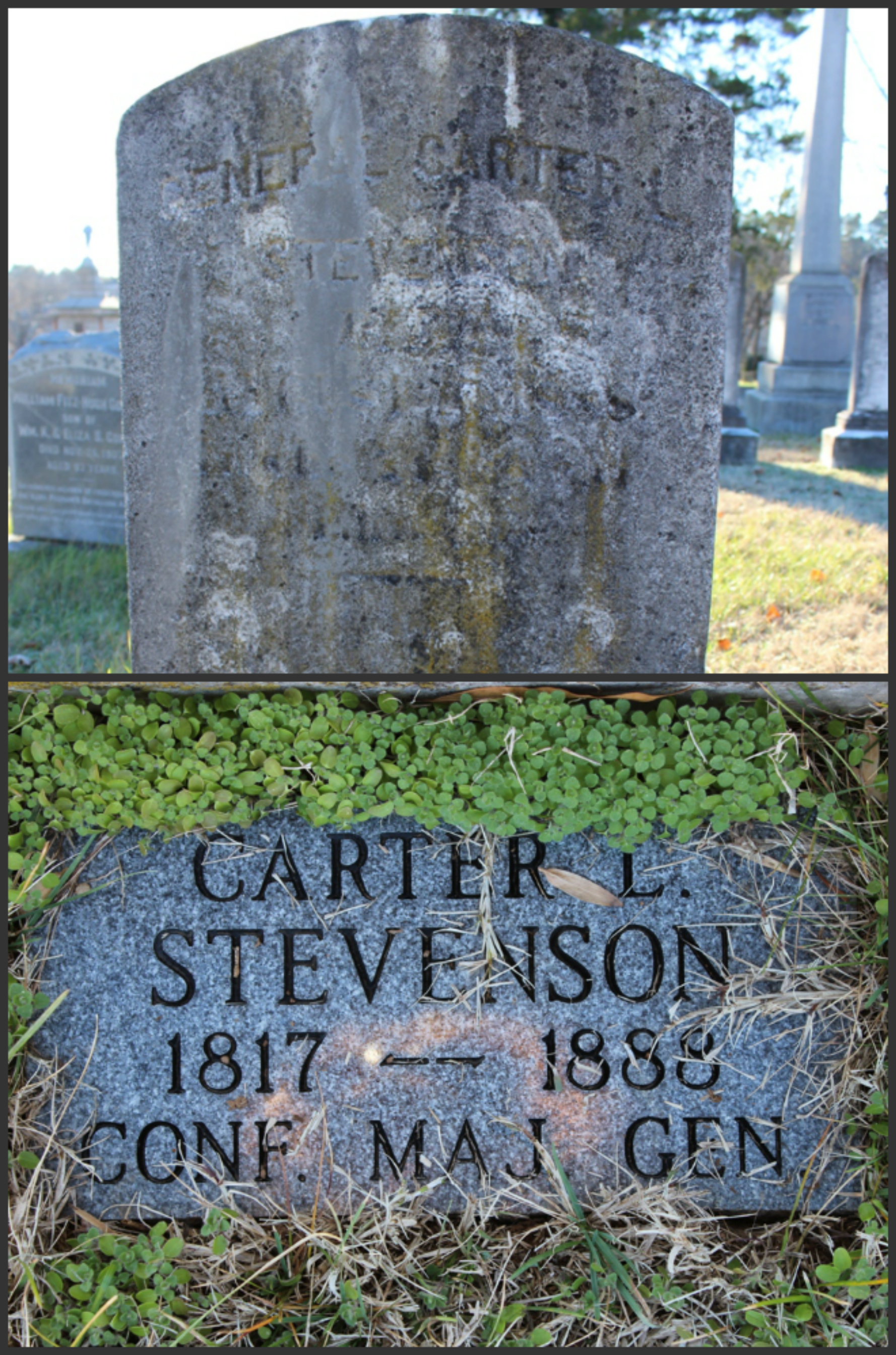“Littlepage’s Big Contributions to the Confederacy”
This is another installment of “Tales From the Tombstone.”

Littlepage was the middle name of Carter L. Stevenson, a Confederate major general that saw extensive service in the west during the American Civil War. Born in Fredericksburg, Virginia to a wealthy and prominent family, Stevenson finished his education with a degree from West Point Military Academy, as part of the class of 1838, which would include notable Civil War generals Irvin McDowell, Pierre Gustave Toutant Beauregard, Edward Johnson, A.J. Smith, and William Hardee. Stevenson graduated near the bottom of the class was commissioned as a second lieutenant in the infantry.
First seeing action in the Second Seminole War, Stevenson also saw service in on the frontier and distinguished himself in action during the Mexican-American War at Palo Alto and Resaca de la Palma. When the war ended in 1848, Stevenson again served on the frontier and in the Deep South before returning to fight in the Third Seminole War in Florida.
Before resigning his commission in 1861, Stevenson was back out west and served during the Utah War, an armed confrontation between U.S. forces and Mormon settlers in the Utah territory.
His first service, like most Southern ex-U.S. officers, was to his home state, where he was quickly commissioned a lieutenant colonel in the Confederate service. Another promotion, to colonel, and command of the 53rd Virginia Infantry soon followed. His rapid rise continued when he received his brigadier general commission in February 1862 and the Virginian was posted to General Benjamin Huger’s command.
Yet, his time in Virginia in the American Civil War quickly came to an end. The recently promoted general was needed in East Tennessee and off to the western theater the Fredericksburg native went. He commanded a division in the Volunteer State and took part in operations under General Edmund Kirby Smith in the Department of East Tennessee.
After the Kentucky campaign that culminated in the Battle of Perryville, Stevenson gained his major general’s commission that same month, October 1862.
By the end of the year, December 1862, Stevenson was sent with a reinforcing column of 10,000 men from General Braxton Bragg to General John C. Pemberton in Mississippi. During the several campaigns that culminated with the capture of Vicksburg, the “Gibraltar of the West”, on July 4, 1863, Stevenson showed his reliability and effectiveness at divisional command. His division bore the brunt of the Union assaults at Champion’s Hill and Stevenson personally oversaw the rearguard action after the Confederate defeat at Big Black River Bridge.
During the Siege of Vicksburg, Stevenson was placed in charge of a portion of the Confederate defensive works. Surrendered on July 4, 1863, Stevenson was exchanged in time to return to a division command prior to the Battle of Chattanooga. He would serve as a division commander the rest of the war besides a few temporary corps command assignments. His list of actions included the Atlanta Campaign, the Franklin-Nashville Campaign, and the Carolinas Campaign.
Stevenson was surrendered again and received his parole when General Joseph Johnston surrendered Confederate forces outside Raleigh, North Carolina, at the Bennett Place to Union General William T. Sherman.
With his parole, Stevenson finally returned to Virginia permanently. There he took up positions as a civil and mining engineer. Married in 1842, to Martha Griswold, Stevenson lived in Caroline County, Virginia where he died at the age of 70 on August 15, 1888.

He was interred at the Confederate Cemetery in downtown Fredericksburg, Virginia.
One minor point: Carter Stevenson did not resign. He mailed in a letter of resignation but joined the Confederates before it had been accepted. He was therefore dismissed and carried as a deserter, “it having been ascertained, to the satisfaction of the War Department, that he had entertained and expressed treasonable designs against the Government of the United States.”
He and Dabny Maury, who also left before having his resignation accepted, spent a lot of time and energy postwar trying to get the “deserter” tag replaced by “resignation.” The War Department refused, to their chagrin.